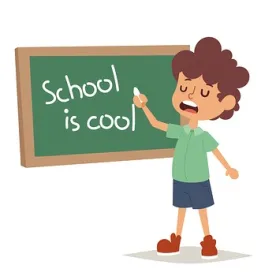School Districts across the state are experiencing an upheaval of all that is normal and forced to react and adapt to the “new” normal. On March 24, 2020, Governor Evers set forth Emergency Order #12, issuing a Stay At Home order. That order specifically directed that schools will not be open until April 24, 2020.
Many school districts transitioned to virtual learning, or will be in the foreseeable future. Virtual learning provides the opportunity for all students to receive services and instruction. However, many schools are wondering how to provide those services to the special education population.
The Department of Education’s Office for Civil Rights (OCR) and Office of Special Education and Rehabilitative Services (OSERS) published a supplemental fact sheet on March 21, 2020 to address many concerns within the educational community. Many districts across the country feared that they would not be able to provide virtual or online educational services to students with disabilities. That is not an accurate belief; the guidance specifically states that “ensuring compliance with the Individuals with Disabilities Education Act (IDEA), Section 504 of the Rehabilitation Act (Section 504), and Title II of the Americans with Disabilities Act should not prevent any school from offering educational programs through distance instruction.”
OCR and OSERS confirmed that both will offer flexibility when possible given the circumstances that are affecting how educational and related services and supports are provided. FAPE may include, special education and related services provided through distance instruction provided virtually, online, or telephonically. The guidance also highlights the understanding that the federal laws allow for flexibility in meeting the individual needs of students. Given the current pandemic, FAPE is provided with the need to protect the health and safety of students with disabilities and those individuals providing special education and related services to students.
The Department of Public Instruction (DPI) set forth new guidance on March 18, 2020, to address extended school closures for students with IEPs. First, the guidance re-affirms that when school is closed, an IEP team may conduct a meeting virtually, or with conference calls. All required IEP team members should participate unless they are unable to due to exigent circumstances. Second, the guidance explains how schools can revise an IEP without an IEP meeting. Specifically, DPI states:
necessary changes to IEPs, including changes in placement, stemming from school closures ordered by the state or recommended by local health departments may be made without an IEP team meeting using the Notice of Changes to IEP Without An IEP Meeting form (DPI Model Form I-10) if the parent agrees and if it is during the duration of the closure.
Third, DPI explains that certain timelines including initial and reevaluations can be extended. DPI states that:
LEAs should maintain documentation as to why the timeline was extended, and communicate to the parent as to why the evaluation cannot be completed within the 60 days. If the IEP team determines that there is sufficient data to determine eligibility, then the IEP team should proceed to determine eligibility, and it would be appropriate to conduct the meeting through virtual technology or a teleconference.
Fourth, DPI sets forth guidance regarding timelines such as the “15 business days to review existing data and the annual review of IEPs. DPI advises that:
LEAs should make every attempt to comply with the required timelines, including conducting annual IEP team meetings. The review of existing data can take place with the required IEP team members outside of an IEP team meeting, and input gathered via email or phone call. Annual IEP team meetings should be conducted through alternative means such as conference calls or virtual technology. However, during a school closure due to a public health order, IEP team meeting timelines may be extended only if:
The LEA has reasonably determined the use of virtual technology is not a suitable method of conducting the required meeting; or
Information necessary for the IEP team’s deliberation is not attainable due to recommendations of the state or local health departments.
Practical Advice:
The guidance referenced above does not provide the “magic” answer to providing special educational and related services during the COVID-19 pandemic. But not every special education student is alike, each student requires a unique IEP and specialized goals and education and services. Therefore, services during this online and virtual education environment requires creativity and innovative ideas. The Department of Education and DPI do not mandate specific methodologies, instead, they recommend collaboration and recommend considering practices such as distance instruction, tele-therapy and tele-intervention, meetings held on digital platforms, online options for data tracking, and documentation. School districts should also consider non-virtual or online based instruction options too, including instructional packets, projects and written assignments.
Schools can utilize the alternative options for IEP meetings and modify and update IEPs if current services cannot be provided at this time. Schools should review student goals and services and communicate with parents on what services are and are not being provided at this time. Not all IEPs will require changes, but communication is critical during this time and schools should continue documenting any and all changes and updating parents as necessary. Documenting these communications and services provided during the virtual school period will help schools determine whether compensatory services are needed when school resumes. Schools should make every effort to comply with the timelines stated in the law, but know that both the state and federal government are understanding during this time.
The essence of schools is teamwork and collaboration, and that has been evident over the last few weeks and will continue as we all work toward the same goal, keeping kids first and remembering that we are in this together.




 />i
/>i

